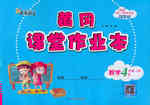题目内容
We may look at the world around us, but somehow we manage not to see it until whatever we've become used to suddenly disappears. 36 , for example, the neatly-dressed woman I 37 to see -- or look at -- on my way to work each morning.
For three years, no matter 38 the weather was like, she was always waiting at the bus stop around 8:00 am. On 39 days, she wore heavy clothes and a pair of woolen gloves. Summertime 40 out neat, belted cotton dresses and a hat pulled low over her sunglasses. 41 , she was an ordinary working woman. Of course, I 42 all this only after she was seen no more. It was then that I realized how 43 I expected to see her each morning. You might say I 44 her.
“Did she have an accident? Something 45 ?” I thought to myself about her 46 . Now that she was gone, I felt I had 47 her. I began to realize that part of our 48 life probably includes such chance meetings with familiar 49 : the milkman you see at dawn, the woman who 50 walks her dog along the street every morning, the twin brothers you see at the library. Such people are 51 markers in our lives. They add weight to our 52 of place and belonging.
Think about it. 53 , while walking to work, we mark where we are by 54 a certain building, why should we not mark where we are when we pass a familiar, though 55 , person?
36. A. Make B. Take C. Give D. Have
37. A. happened B. wanted C. used D. tried
38. A. what B. how C. which D. when
39. A. sunny B. rainy C. cloudy D. snowy
40. A. took B. brought C. carried D. turned
41. A. Clearly B. Particularly C. Luckily D. Especially
42. A. believed B. expressed C. remembered D. wondered
43. A. long B. often C. soon D. much
44. A. respected B. missed C. praised D. admired
45. A. better B. worse C. more D. less
46. A. disappearance B. appearance C. misfortune D. fortune
47. A. forgotten B. lost C. known D. hurt
48. A. happy B. enjoyable C. frequent D. daily
49. A. friends B. strangers C. tourists D. guests
50. A. regularly B. actually C. hardly D. probably
51. A. common B. pleasant C. important D. faithful
52. A. choice B. knowledge C. decision D. sense
53. A. Because B. If C. Although D. However
54. A. keeping B. changing C. passing D. mentioning
55. A. unnamed B.unforgettable C. unbelievable D. unreal
36---40BCADB 41---45ACDBB 46---50ACDBA 51---55CDBCA
解析:
本篇作者通过个人的经历,指出许多人都犯的一个通病:对我们常见到的人成事物熟视无睹,直到有一天这个人或事物突然不见了,我们才发觉我们失去了什么。从而呼吁人们多关注我们周围的人。
36.B
37.C 解析:前句说了人常犯的毛病:对习惯了的东西视而不见,本句便拿一个过去上班途中常看到的妇女作例子。Take…for example(拿……作例子)是固定用法,故36空选B,提到的妇女是作者过去常见的,现在看不到了。篇章第一句及下文均有线索,用used to。
38.A 解析:what是代词,作like的宾语。我们常用“what's the weather like?”来询问天气。
39.D 解析:本句后半部分说她穿着厚重的衣服,戴着毛线手套,天气一定很冷,所以要填snowy/cold/winter才合理,晴朗、下雨及多云都不必如此穿着。
40.B 解析:本句属拟人用法。这位女士夏天会穿着棉布连衣裙,戴上(遮阳)帽子及太阳镜,就像夏天把这一切带到外面似的,故填brought。
41.A 解析:上文得知,这位女士穿着整洁、守时、坐公共汽车,她应该是一个普遍的工作女性,这一点是很清楚的,显而易见的。
42.C 解析:紧扣首句和下文。再也见不到这位女士了,才记起了这一切。天天见到她的时候,却不曾真的留意。
43.D 解析:much作状语,表程度,是I expected very much to see her…改成的感叹结构,作realize的宾语,整句意思是:直到那时(我再也见不到那位女士时)我才意识到我多么想每天早上都见到她。其余选项都表时间和频率,均不妥。
44.B 解析:上句作者说非常盼着见到那位女士,那么也就是想念她了。
45.B
46.A 解析:作者以前天天见到那位女士,却从不真正留意。现在她再也没有出现,作者便对此(她的消失)产生猜测,而这些猜测都应是足以让那位女士不再出现的(坏)事。故45空填worse,46空填disappearance。
47.C 解析:now that表一种原因及一件事的后果。全句意为:她不见了(结果)我倒感觉着我认识她了,(天天见她时却很陌生)
48.D
49.B
50.A 解析:本句较长,空也多,难度就增加了,那位女士对于作者来说是一个“熟悉的陌生人”所谓熟悉是因为常见,所谓陌生,是因为彼此不了解,从未交谈过。这样的人在生活中不少,所以由于这位女士的突然不见,作者怅然若失,才开始意识到日常生活包括了这样一些个“熟悉的陌生人”,然后举了一些例子,这些例子都是日常生活中常见的人,所以48填daily,49填stranger,50填regulahy(有规律地,经常地,因而对作者来说才是familiar。)
51.C
52.D 解析:上文提到的那些“熟悉的陌生人“增加了我们对某些地方及环境的感觉份量(没有这样的人,我们不会对这些地方及环境有这么深的感情和印象),故52空填D。既然这些人起到这样的作用,那么他们也就重要了,所以51空填important。
53.B
54.C
55.A 解析:结合上文,通读最后一段,可知作者设问:走路上班时,我们会借助建筑物来标识(判断)我们走到那里了,为什么我们不该借助那些常见的人来判断一下我们走到那里了呢(还不只是走路吧)?答案不言而喻。55空较易:一个熟悉(常见)的但又不了解(包括姓名)的人,unnamed是“未命名或未被知道名字的”,54空填passing也合理,经过某个建筑,我们就知道走到什么地方了。53空填if,表条件,结合全句可知。

 中考利剑中考试卷汇编系列答案
中考利剑中考试卷汇编系列答案 教育世家状元卷系列答案
教育世家状元卷系列答案 黄冈课堂作业本系列答案
黄冈课堂作业本系列答案We may look at the world around us, but somehow we manage not to see it until whatever we’ve become used to suddenly disappears. 36 , for example, the neatly-dressed woman I 37 to see—or look at—on my way to work each morning.
For three years, no matter 38 the weather was like, she was always waiting at the bus stop around 8:00 am. On 39 days, she wore heavy clothes and a pair of woolen gloves. Summertime 40 out neat, belted cotton dresses and a hat pulled low over her sunglasses. 41 , she was an ordinary working woman. Of course, I 42 all this only after she was seen no more. It was then that I realized how 43 I expected to see her each morning. You might say I 44 her.
“Did she have an accident? Something 45 ?” I thought to myself about her 46 . Now that she was gone, I felt I had 47 her. I began to realize that part of our 48 life probably includes such chance meetings with familiar 49 : the milkman you see at dawn, the woman who 50 walks her dog along the street every morning, the twin brothers you see at the library. Such people are 51 markers in our lives. They add weight to our 52 of place and belonging.
Think about it. 53 , while walking to work, we mark where we are by 54 a certain building, why should we not mark where we are when we pass a familiar, though 55 , person?
|
1. |
|
|
2. |
|
|
3. |
|
|
4. |
|
|
5. |
|
|
6. |
|
|
7. |
|
|
8. |
|
|
9. |
|
|
10. |
|
|
11. |
|
|
12. |
|
|
13. |
|
|
14. |
|
|
15. |
|
|
16. |
|
|
17. |
|
|
18. |
|
|
19. |
|
20.A unnamed B. unforgettable C. unbelievable D. unreal